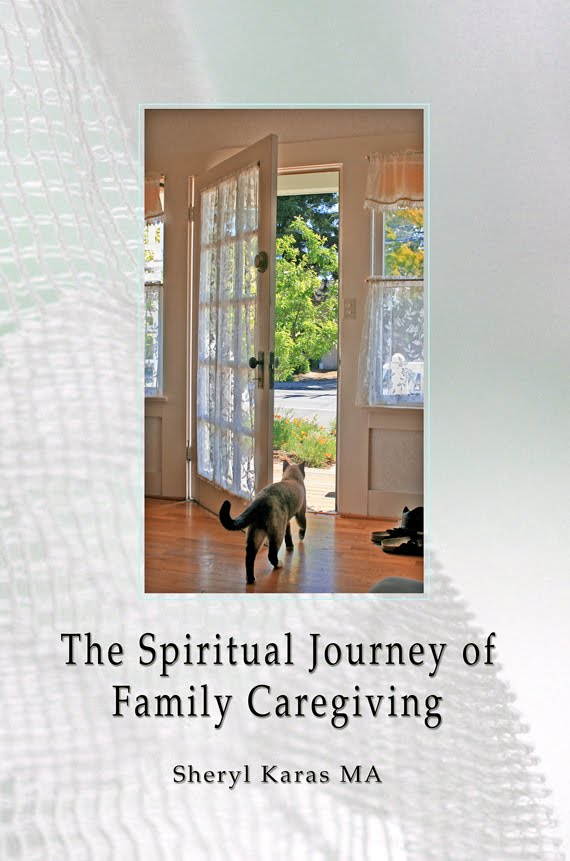
“...Every day’s an endless stream
Of cigarettes and magazines
And each town looks the same to me
The movies and the factories
And every stranger’s face I see
Reminds me that I long to be
Homeward Bound
I wish I was
Homeward Bound
Home, where my thought’s escaping
Home, where my music’s playing
Home, where my love lies waiting
Silently for me ....”
—“Homeward Bound”, by Simon & Garfunkel, 1966
On a recent trip back east I had a megadose of “home.” People always ask how California is different from New England and I talk about old houses and white church steeples, green green grass in the hottest summer, autumn leaves, and rolling hills. I talk about the way people talk and what they talk about, how they dress and how they act. It’s a completely different culture in all kinds of subtle and not so subtle ways but what really makes New England home for me is harder to explain.
It’s a feeling of place, the absolutely solid conviction that this is a place that supports me, where I feel safe, where I can relax. I see those white colonial houses with their black shutters sitting peacefully around the town green with the white-steepled First Congregational Church at the corner (those classic New England churches are always “First Congregational”, don’t ask me why) and even though I’m Jewish and I’ve never stepped inside one of those structures in my life I feel right at home.
It’s the touch of familiar. I know this. I know how to act here. I know what’s expected of me. And I know what to expect. When my parents took me to a play and insisted that we arrive a FULL HOUR EARLY even though it was reserved seating and we had our tickets already I was surprised to see the parking lot filled with other people waiting in their cars for the doors to open. However, when the performance scheduled for 8 o’clock started exactly on the dot of eight I breathed a sigh of relief. I haven’t been to an event that started on time in 16 years, the entire time I’ve lived in Santa Cruz. It’s those little things that really don’t matter that give you the reassurance that all is well. It’s as it should be. I know this. I’m safe here.
Dementing illnesses strip this safety away. Little by little and sometimes in large chunks the familiar becomes unfamiliar. The little things a person unconsciously counts on to clue them in to where they are, who they are, how they should act and what they should expect disappears. The family starts to hear “I want to go home” over and over. What this really means is “I don’t feel safe anymore.” “Nothing is familiar.” “I want to go where I don’t have to worry, where I can rest, relax, breathe deeply and know everything is alright.”
Unfortunately, when you are losing your mind everything is NOT alright no matter what anyone says to convince you otherwise.
Families resort to all kinds of tricks to deal with this and sometimes that works. Sometimes going for a drive around the block and going through the familiar action of walking up to and opening the front door to one’s house is enough to trigger the feeling of “at homeness” for a confused patient. An old favorite dessert or a piece of music can do the same thing.
But when all else fails—the usual tricks, the false reassurance, the distractions—it’s time to get honest. Things aren’t the same anymore. Neither one of you is in familiar territory anymore and it does feel terrible.
But home isn’t just where things feel familiar. “Home is where the heart is.” “Home is where they have to take you in.” “Home is where everyone knows your name.” Home is where you know you are loved. So bank on that instead.
First acknowledge the pain and confusion outloud. “You’re right. Everything has changed and there’s nothing we can do about it. I’m so sorry. I wish I could make it different but I can’t.”
Then remind the patient (and yourself) that you still have love, the ability to show you care and the ability to receive it. Even the most demented patient is capable of holding your hand and vice versa. So hold hands together, be together, claim a moment of comfort together. The only thing any of us really have is the present moment because nobody knows what the future will bring and the past is over. So be in the present together. Remind your patient that they are safe, you love them and care about them. Say “We can’t go back now. I wish we could! I want to go home, too! But it’s too late now. We’ll just have to stay here for the night. But at least we’re together. Working together there’s nothing that we can’t handle. Can you help me with that? Let’s have some ice cream together and watch TV. We can cuddle up on the couch, look at old photo albums and reminisce about old times, maybe put on some music and dance.” Tell your patient “I’m sure in the morning it will feel a lot better.”
And it will.
This blog entry is a chapter from the Spiritual Journey of Family Caregiving.











